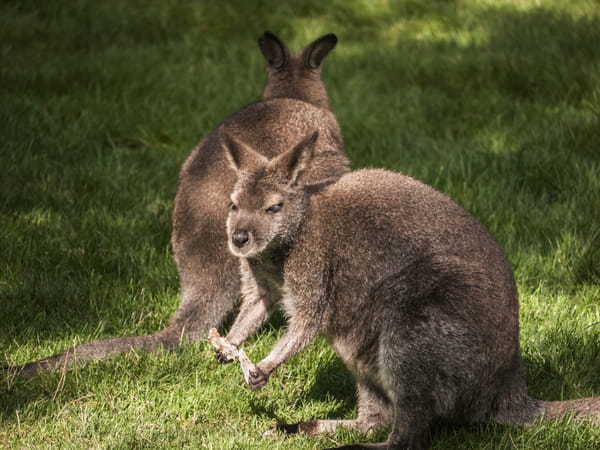A “super predator”, just by its noise, scares all animals.
The food chain is a series of predators and prey. However, a “super predator” places itself above these natural relationships. The mere sound of its presence evokes more terror in animals than most known predators. This was confirmed by a study on Australian marsupials, published in Proceedings of the Royal Society B.
The researchers thus exposed kangaroos, wallabies, thylogales and opossums to the sound of sheep, dogs, Tasmanian devils and even wolves but nothing happened. Through 684 videos filming their reactions to these sound recordings of predators, they noticed that the marsupials fled 2.4 times more often from the noise of the “super predator” than from the second most frightening predator for them, the dog. If they did not flee, they showed signs of vigilance, for example by placing themselves on their hind legs.

This terrifying noise is none other than the human voice. “Our vigilance results corroborate that all four species have a significant fear of humans,” analyzed the authors of the study. “Wildlife around the world obviously recognizes that it is humans who pose the greatest source of danger,” concluded Katherine McGann, an ecologist at the University of Tasmania, and her colleagues.
A result which confirms a study carried out in the African savannah where mammals feared the noise of humans even more than that of lions, even though it is this feline which dominates the food chain in this part of the globe. Research on deer in Virginia has also shown that they adjust their behavior to try to avoid humans and the same is true for African elephants, coyotes or foxes, which move away from areas of high density. human density.
Researchers therefore emphasize the importance of recognizing humans as “super predators”. “Establishing how close the fear of the human ‘super-predator’ is to being ubiquitous is of practical importance, as it would obviously simplify the use of fear in conservation and management,” said McGann and his colleagues. team.
